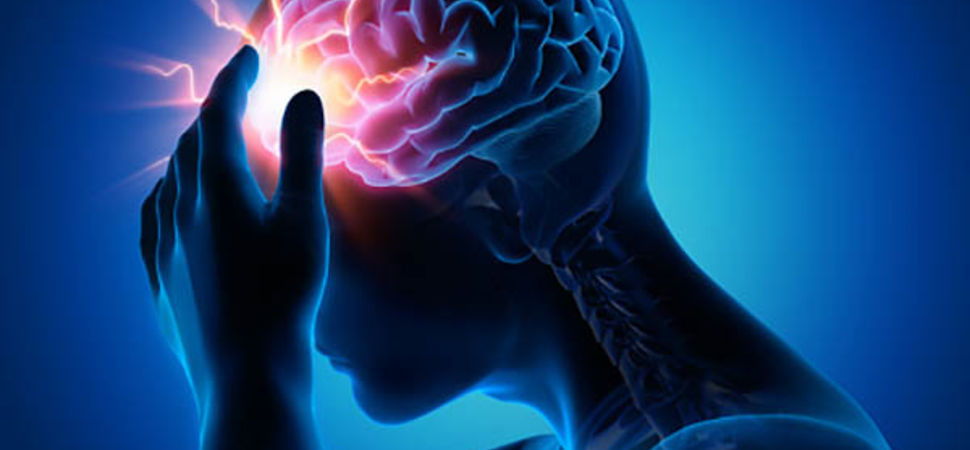
Are Migraines Genetic?
A total of 23 pairs of chromosomes make up your DNA, which houses your genes. Both your mother and father contribute one pair of chromosomes to you. A gene is a section of DNA that contains instructions on how your body may manufacture different types of proteins. Genes can occasionally alter, and these changes might either cause or predispose a person to a certain health problem. It's possible for parents to pass these gene alterations along to their offspring. Migraine has a genetic component, either alterations or variants. In fact, it's thought that more than half of those who suffer from migraines also have at least one other family member who is affected.
Yes, some types of migraine are strongly inherited. Familial hemiplegic migraine (FHM) is a kind of migraine that can be passed down through an autosomal dominant pattern. This indicates that FHM may be caused by inheriting just one copy of the mutant gene. A person does not automatically get FHM just because they carry the There are four types of FHM.
The gene that produces FHM determines the type of FHM a person gets. There are four categories of FHM:
- Type 1 FHM: The CACNA1A gene mutation that results in Type 1 FHM is the most prevalent type of FHM
- FHM type 2: Mutations in the ATP1A2 gene cause this FHM. Seizures may potentially be a factor in FHM type 2
- FHM type 3: SCN1A gene mutations are the cause of FHM type 3
- FHM type 4: If a gene responsible for the illness cannot be identified, a doctor will diagnose FHM type 4
Genetic Models of Migraines Continue to Develop
In 2007, research from the Archives of Neurology advanced the earlier lab work even farther. A new set of three genes for familial hemiplegic migraine have been discovered through research on mice and ongoing genetic factors.
One kind of migraine that is recognised to run in families is familial hemiplegic migraine. Since a visual halo or aura is typically noticed by sufferers prior to the beginning of complete symptoms, it is categorised as an "aura migraine." Another common occurrence is temporary weakness or numbness on one side of the body.
Due to its peculiar symptoms, some of which may be permanent, familial hemiplegic migraine is one of the most severe types of the condition. It is also one of the easiest to identify. In the future, it could be feasible to pinpoint the offending genes and "switch them off."
It's important to realise that genes do not directly cause or trigger migraine attacks. There are always other things at play if you suffer from migraines.
In addition, a particular gene does not guarantee that you or your offspring will always get migraines. Instead, how your body reacts to different circumstances is influenced by your DNA. Simply put, for certain people, conditions like stress, melancholy, exhaustion, and dehydration increase their risk of developing a migraine. Due to hereditary causes, their bodies respond to certain triggers differently from how other individuals do. For instance, many people who don't get migraines can enjoy coffee or cola to their heart's content, yet the same beverages may tip someone over the brink into an attack. The causes of migraines are very individual and difficult to anticipate. Even individuals of the same family typically experience migraines differently. Some individuals get migraines because they don't get enough sleep or because they are stressed out, while others may get migraines because they slept too much or because they consumed specific foods.
Overall
A mystery still surrounds migraine. Although the specific aetiology of migraines is mostly unclear, researchers do know that a combination of your genes and your environment contributes to the condition.
The disease of familial hemiplegic migraine is known to be influenced by mutations in particular genes, according to specialists.
On the other hand, migraine appears to be influenced by changes in a few genes. Although having migraine in your family might seem like a nightmare, it can be helpful. How? It can take some guesswork out of establishing your triggers, and you may respond to the same or similar medication as your family member.
If you suspect you’re experiencing your first migraine episode, contact a healthcare pro to rule out other health conditions and discuss treatment options for migraine. If you have severe migraine symptoms or you’ve had a head injury, seek urgent medical care. Even though it could seem like a nightmare, having migraines in your family might be beneficial. How? Establishing your triggers will become easier thanks to this, and you could find that you respond to the same drug as a family member.
If you believe you are having your first migraine episode, speak with a medical expert to rule out any other issues and go over migraine treatment alternatives. Seek emergency medical attention if you have severe headache symptoms or a head injury.

